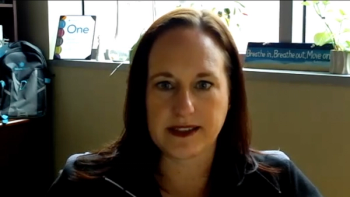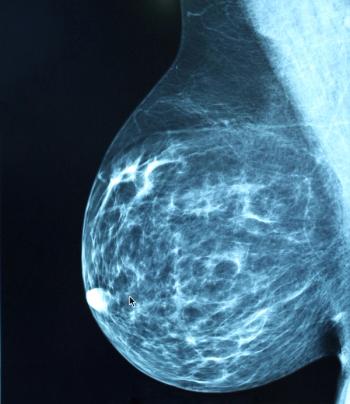
Oncology NEWS International
- Oncology NEWS International Vol 8 No 5
- Volume 8
- Issue 5
Careful and Correct Coding Crucial for Oncology Practices to Avoid Triggering a Medicare Audit
ALEXANDRIA, Virginia-Careful and correct coding has become crucial for oncology practices that wish to maximize reimbursement and minimize their chances of a Medicare audit, said Roberta Lee Buell, MBA, president and chief executive officer of Intake Initiatives, Inc./Documedics, San Bruno, California.
ALEXANDRIA, VirginiaCareful and correct coding has become crucial for oncology practices that wish to maximize reimbursement and minimize their chances of a Medicare audit, said Roberta Lee Buell, MBA, president and chief executive officer of Intake Initiatives, Inc./Documedics, San Bruno, California.
Coding issues have become so complex that everyone will be audited, at least on a prepayment basis, she said at the 25th Annual Meeting of the Association of Community Cancer Centers.
Ms. Buells expertise on oncology coding issues is so widely recognized that session chairman John E. Feldmann, MD, of the Mobile Infirmary Medical Center, Mobile, Alabama, introduced her as the code mistress.
Unlike other areas of law, where fraud is generally defined as the willful intent to deceive, Ms. Buell emphasized that in Medicare reimbursement, fraud is defined as reckless disregard for the current rules of coding.
This means that innocent mistakes are frequently audited and investigated as potential fraud, and a single line item can trigger a fine of up to $10,000, Ms. Buell said, adding that this is where Medicare is deriving a lot of its revenue these days.
Avoiding accusations of reckless disregard requires that all oncology prac-tices and hospital oncology services establish procedures that attempt to assure that their coding complies with the rules. This requires educating the entire staff about the realities of a rapidly changing, but often misunderstood, field. Sources of confusion are legion, she warned, because the definitions of the various codes are extremely precise, and the requirements for documentation are strict.
For example, to bill for a relatively lucrative physician consult as opposed to an intake visit, which is reimbursed at a lower rate, the consulting physician must meet three requirements: the physician must not yet have decided to treat the patient, must have sent a written report to the patients primary care physician, and must not have initiated treatment prior to completing the consult.
If these conditions cannot be met, she advised, the wise course is to bite the bullet and code for a lower-paid initial visit rather than for a consult. Ms. Buell believes that consults are triggering many audits.
Nursing services must also be scrupulously documented, she said. To avoid trouble, for example, practices should use really good chemotherapy flow sheets and carefully document physician supervision of nurses.
In initiating audits, Medicare looks for aberrant behaviors such as excessive use of a single code, billing drugs at higher rates than other practices in the area, excessive use of lab work, and such irregularities in clinical trials as billing drugs or patient management fees that were paid by the trials sponsor.
It is important, she explained, that clinical trial contracts specify that the sponsor pays the practice for managing data, not people. She also cautioned that using a single code for all office visits constitutes reckless disregard. In addition, she strongly advised staying in touch with local medical societies to keep abreast of which issues Medicare is auditing at any given time.
Three Levels of Audits
Medicare has three levels of audits: prepayment reviews; fair hearings, which may involve writing a letter, talking on the phone, or appearing in person; and hearings before an administrative law judge. It is vital that those being investigated understand and use their right of appeal, she said.
She reassured the audience that every audit does not imply a suspicion of fraud and that a number of resources exist to help practices during audits. Professional organizations are particularly good sources of advice, she said, adding that successful resolution of an audit need not require a lawyer if the practice has carefully documented its activities and followed the rules.
Articles in this issue
almost 27 years ago
Delirium Is Often Misdiagnosed in Advanced Canceralmost 27 years ago
Preop Chemo Recommended for Locally Advanced Diseasealmost 27 years ago
High Degree of Variability in HIV Testing Throughout the USalmost 27 years ago
Physicians Need ‘Coherent Game Plan’ for Care of Dyingalmost 27 years ago
NCI Funds Pediatric Brain Tumor Consortiumalmost 27 years ago
Marketing Your Cancer Center to Today’s Savvy Consumersalmost 27 years ago
Axillary Irradiation Can Replace Dissection in Some Breast Cancer’salmost 27 years ago
Dr. Bailes Urges Oncologists to Act Against APC Proposalalmost 27 years ago
Elective Lymph Node Dissection Supported in Some Melanomasalmost 27 years ago
Broad Coalition of Health Care Groups Opposes APCsNewsletter
Stay up to date on recent advances in the multidisciplinary approach to cancer.



































